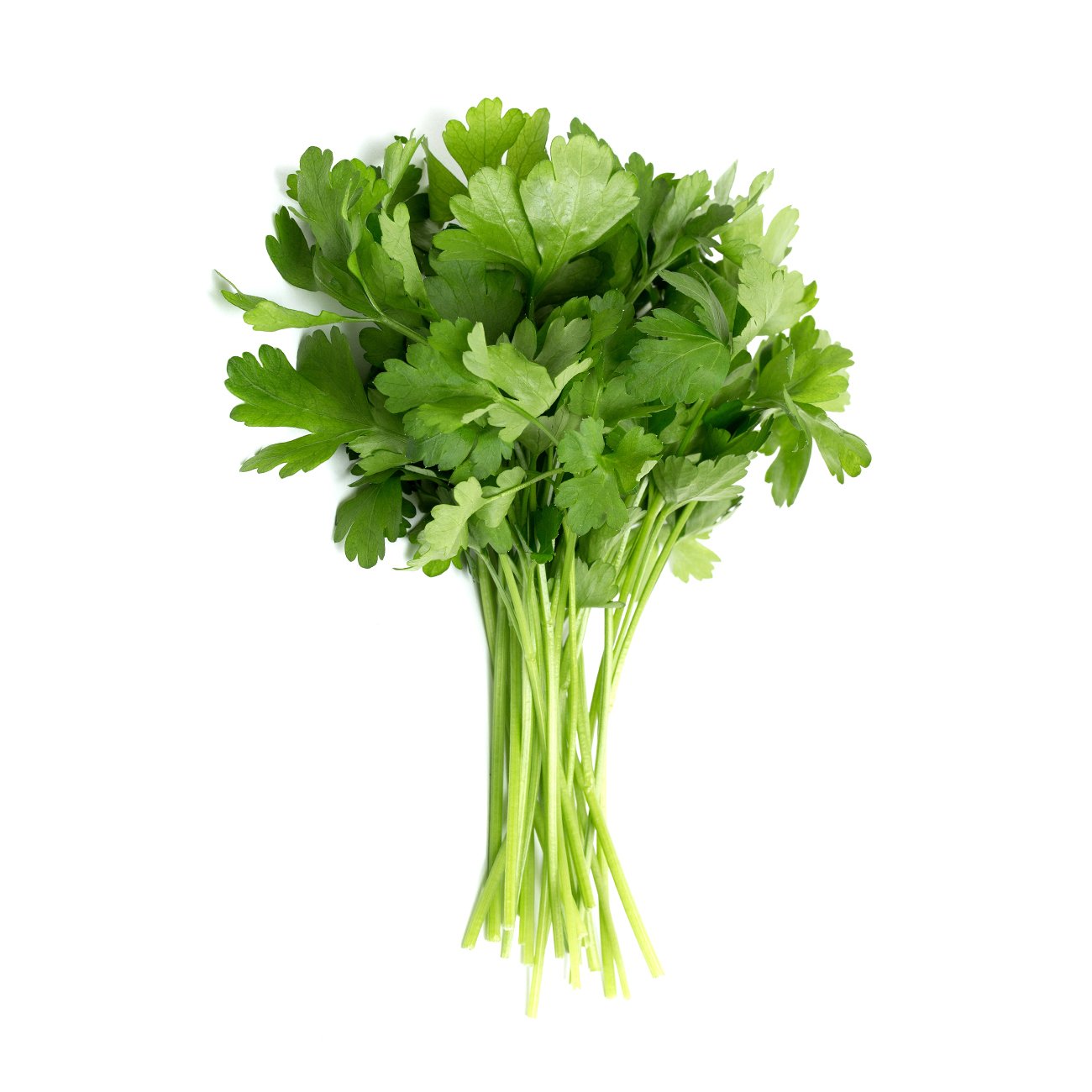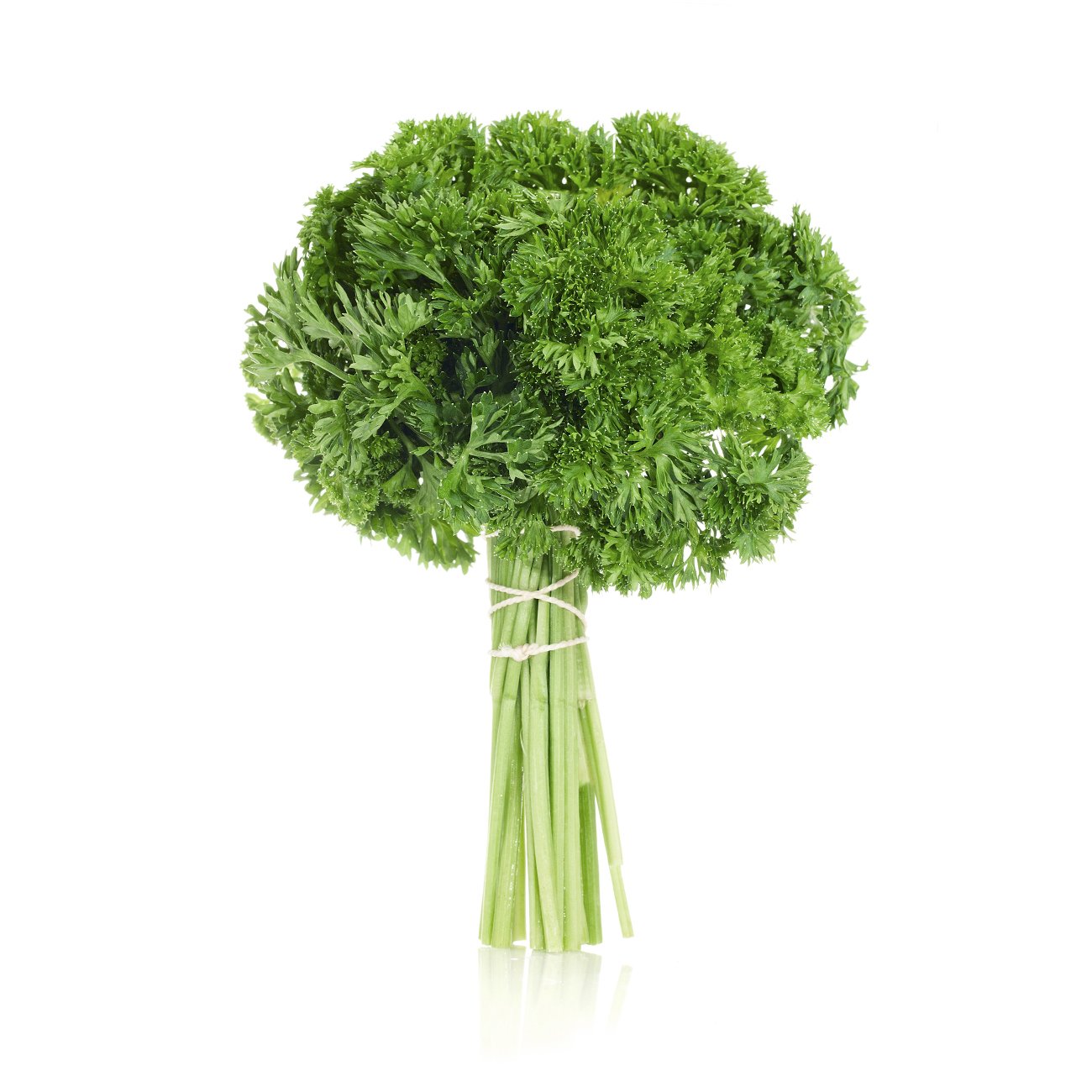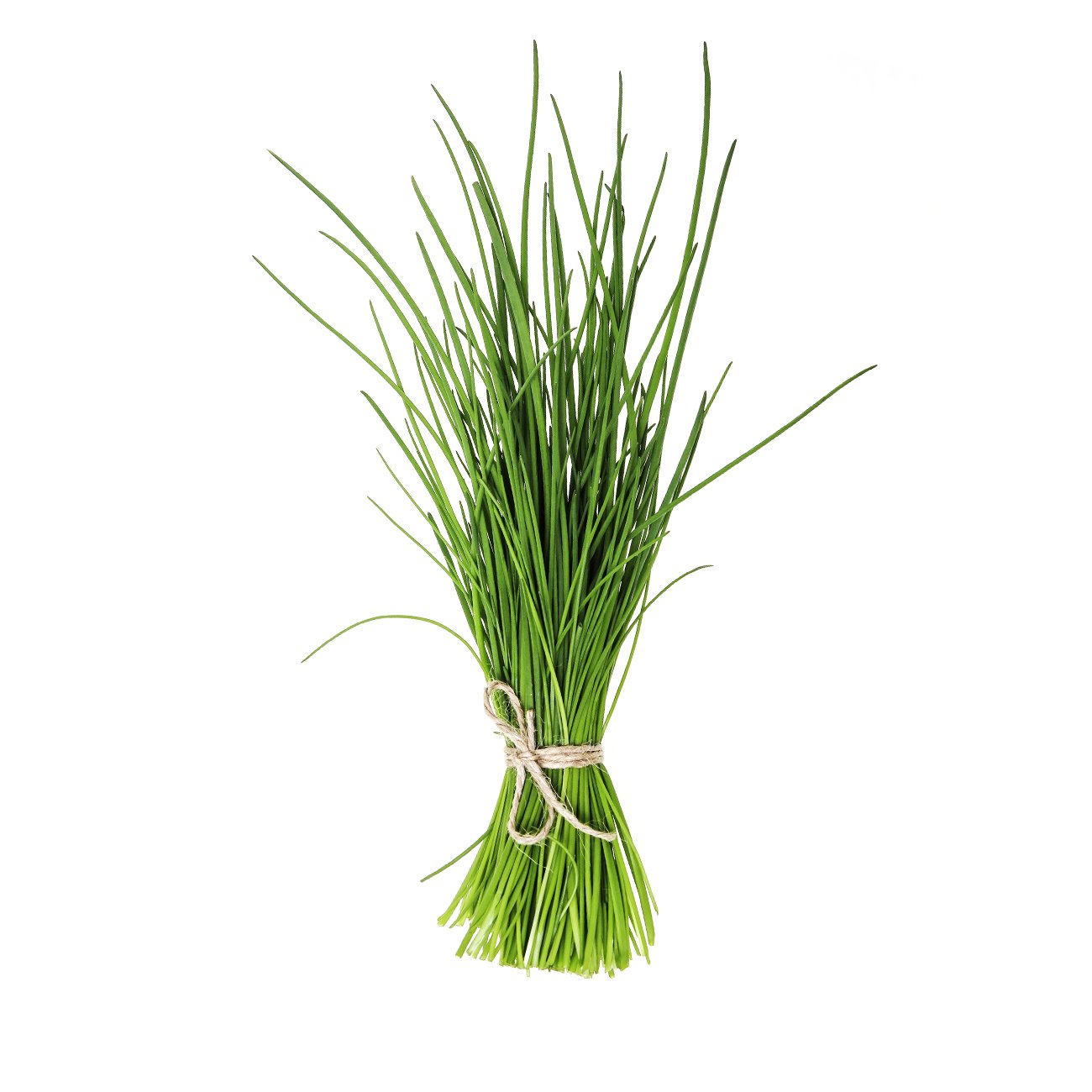Parsley, continental
A popular ingredient bound to balance the flavours of your meal.
Alternative Name
Italian parsley, flat-leaf parsley
Scientific Name
Petroselinum crispum var. neopollitanum
Health benefits
Continental parsley has a robust flavour. It is very versatile as a salad leaf and as a fresh seasoning. It looks a little like coriander. Use in stocks, sauces, soups, pesto, or add to a rice or pasta dish just before serving.
-
Harvesting
The quality standards for parsley refer to freshness, green colour, freedom from defects or seed stems and freedom from decay. Parsley can be harvested progressively or cut all at one time. Long petioles are desirable for bunching.Postharvest storage temperature
Rapid removal of field heat without excessive drying is advantageous for retaining green colour and freshness of parsley. The recommended conditions for commercial storage of parsley are 0°C with 95–100% relative humidity. Parsley is not chilling sensitive and should be stored as cold as possible without freezing, which occurs at -1.1°C.Controlled atmosphere storage
Parsley can tolerate 8–10% O2 and 8–10% CO2 but this may be of little benefit at 0°C. 10% O2 and 11% CO2 was optimal for delaying yellowing in parsley stored at 5 degC. Storage in 10% O2 and 10% CO2 or 10% CO2 delayed yellowing at room temperature. Parsley flavour and aroma are retained better in perforated film packages than in sealed film packs.Ethylene sensitivity
Parsley leaves produce very little ethylene but are very sensitive to it, which accelerates yellowing when stored above 0°C.Humidity storage
Store at 95–100% relative humidity.Disease & infection
Both erwinia and botrytis can cause postharvest damage from rot and mould. -
Pick from stem before use. Keep in a jar of water on bench top, like flowers.

You might also like
Veggy tip
If adding parsley to a cooked dish, it is better to add it at end of cooking as flavour is lost with prolonged heat. Eating fresh parsley after consuming garlic is recommended for freshening breath.



